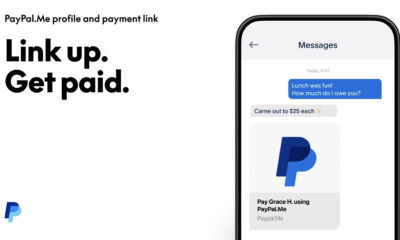Business
Direct Access to CPS for non-banks to fuel digital payments’ growth: PCI
Welcoming the Reserve Bank of India’s move to allow authorised non-bank payment system providers to participate in centralised payment systems (CPS), the Payments Council of India (PCI), the country’s largest industry body for the non-banking digital payments ecosystem, has said that it’s a step forward to create a financially-inclusive society and strengthen digital payment landscape, triggering financial innovations and customer protection.
Vishwas Patel, Chairman, Payments Council of India and Director, Infibeam Avenues Limited, appreciated the notification by RBI and said: “We truly appreciate the central bank’s efforts in promoting the use of digital payments and welcome the access of RTGS and NEFT to the Prepaid Payment Instrument Issuers, Card Networks; and White Label ATM Operators. The industry will work towards implementation of the notification. This move definitely indicates a bright way forward for digital payments instruments in the country.”
Mahendra Nerurkar, VP and CEO, Amazon Pay India and Co-Chair, PPI Committee, PCI, said: “We would like to express our sincere thanks to the central bank for allowing Prepaid Payment Instrument Issuers access to centralised payment systems. This will assist to strengthen digital payments and bring more innovation, as well as improve customer protection and efficiency.”
Digital Payments are a step forward to create a financially inclusive society in the country and PCI has been instrumental to lead such varied discussions with the RBI with a vision to promote a cashless payments ecosystem in the country.
In the first phase, authorised non-bank PSPs, viz PPI Issuers, Card Networks and White Label ATM Operators are eligible to participate in CPS as direct members. Ever since the announcement of the grant to access the CPS to the non-banking digital payments industry in the Statement on Developmental and Regulatory Policies, the industry was looking forward to the instructions by RBI for the implementation of the same.
The NEFT and RTGS systems were made available 24x7x365 with effect from December 2019 and December 2020 respectively. The extension of the access to payment systems to more entities lowers the overall risk in the payments ecosystem and allow growth of digital payments in India adjusting to the payment needs of consumers. It also brings advantages to the non-banking industry like reduction in cost of payments, minimising dependence on banks, reducing the time taken for completing payments, eliminating the uncertainty in finality of the payments as the settlement is carried out in central bank money, etc.
Also Read: A.I. Based EdTech start-up SP Robotic Works raises USD 3 mn in Series A funding
The risk of failure or delay in execution of fund transfers can also be avoided when the transactions are directly initiated and processed by the non-bank entities. This extension of access will definitely help further increase the penetration of digital payments in the country.









































